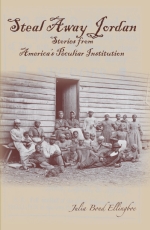I started to feel that I didn’t know roleplaying games well enough so I came up with the plan to read a roleplaying game corebook for every year they have been published. Selection criteria is whatever I find interesting.

In Steal Away Jordan, you play Black slaves during the period in American history when slavery was legal. You try to survive, live and achieve what victories you can. It’s an impressive game, especially given the extremely serious subject matter. Thorough the game, there’s a focus on the three-dimensional humanity of the enslaved. They’re not reduced to silent victims but emerge as dynamic individuals with their own goals and dreams.
The game says that: “Like most role playing games, Steal Away Jordan is about heroes.”
The game doesn’t shy away from the brutality of the era it depicts. In terms of subject matter, it’s one of the harshest games I’ve read. The inhumanity depicted in it is especially hard-hitting because of the game’s emotional fullness: These horrors define the world in which our characters live and the scenes which we play.
The design plays with power differences in inequal social situations and maps them onto the players and the GM in an unusual way. The players create their characters but the GM names each of them and assigns them worth, a game mechanical attribute based on elements such as age and health. The players come up with goals and motivations but don’t tell them to the GM. The game’s action flows from the players trying to reach their goals in the environment run by the GM.
One design axis for roleplaying games is whether the system is a seamless engine running the game or a series of tools used by the players and the GM during a session as they see fit. Steal Away Jordan belongs to the latter category, with a loose design that requires a proactive approach from all participants. The example player characters demonstrate the breadth of the game and the range in which the particular taste and creative ideas of the participants can manifest. The characters range from an essentially realistic person of the period to a modern Black woman transposed into the historical era of the game in the style of Octavia Butler’s novel Kindred.